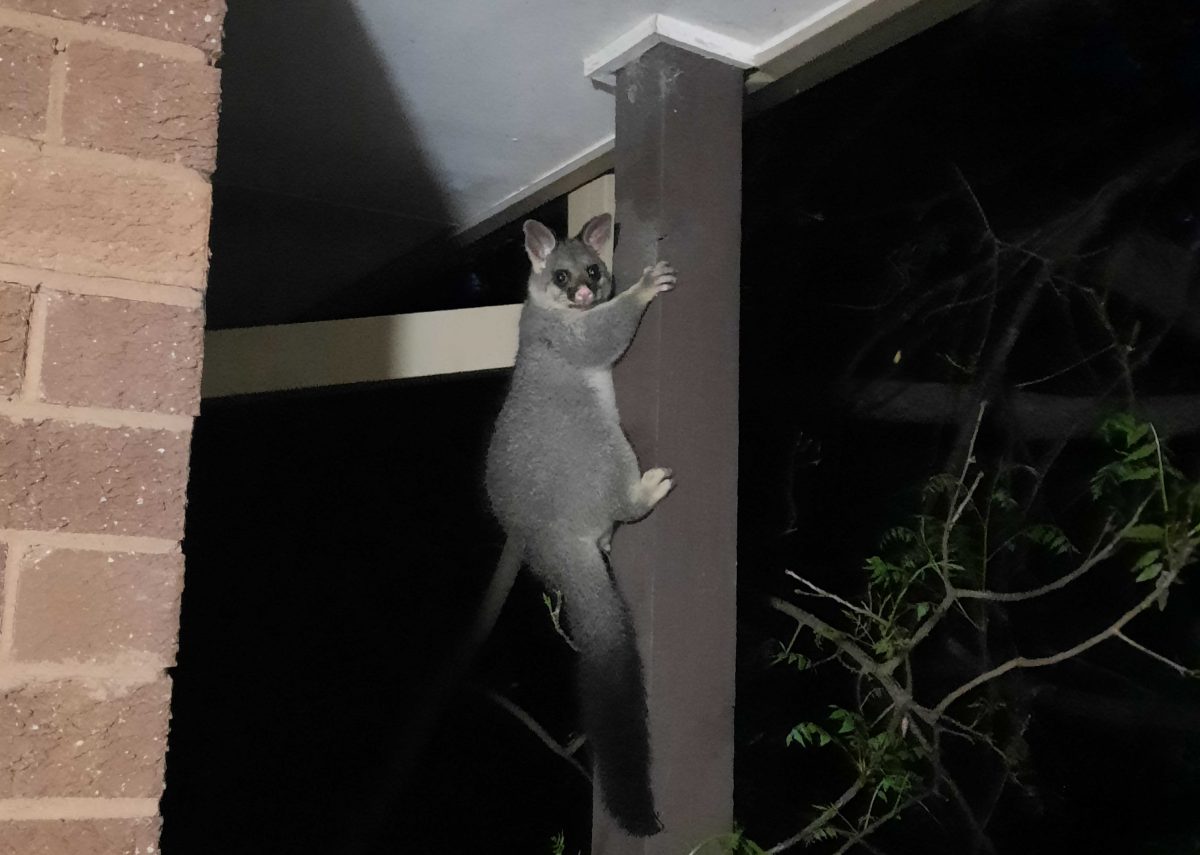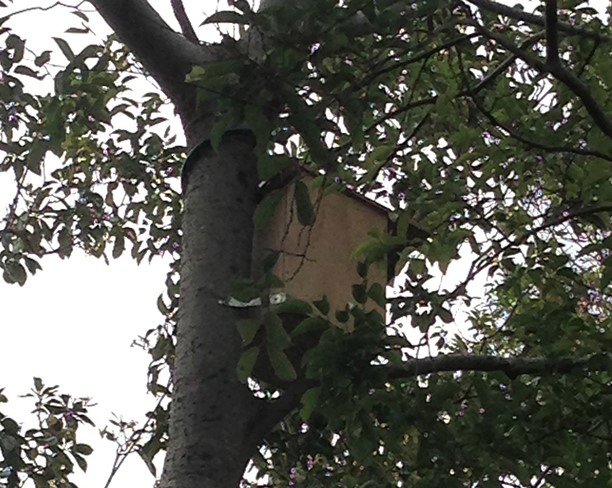
Make yourself at home: A brushtail possum mum on the deck at Rivett. Photo: Ian Bushnell.
They don’t call it the Bush Capital for nothing.
We love Canberra’s trees and leafy suburbs but by God it’s a jungle out there.
And in the past few years, conditions have been perfect for all kinds of critters to prosper.
Especially, those high-wire artists and roof droppers with the most terrifying of screeches that make homes in ceiling cavities and are almost impossible to remove.
Not sure when the possums arrived in force in our neck of the woods at Rivett. Maybe they were there all the time but their presence was not so dramatic and certainly not in today’s numbers.
I started to see the odd one on moonlit nights stepping silently across the phone line strung between houses, a kind of possum highway through the suburbs.
But the first time one landed on the roof, leaping off the big Chinese elm that spreads over the roof, it came as a shock.
The whole house vibrated with the thump, followed by the sprint across the tiles.
It’s been like that for years, a nightly ritual almost like clockwork, only now there’s more than one and their game has gotten ever more raucous.
That’s sure to be a brushtail possum, says Stuart Ireland from Possum Busters removal service.
“They are very regular, and have a little circuit round their territory and go and check everything, and they will do it on the clock,” he says.
For such little, furry creatures, possums emit some of the strangest noises, rousing you from your sleep with hisses and bloodcurdling screams, sometimes directly beneath your window.
Obviously there is a bit more than playing going on out there.
Stuart says they’re likely defending their territory from rivals to maintain their food source.
“It’s a bit of a dog-eat-dog world,” he says. “If you don’t defend your little patch you lose your food source and starve.”

A possum box can keep them out of the roof. Photo: Possumbusters.
And the bushier the burbs are the more possums they can support.
“There are not as many possums in the wild as there are in our suburban areas,” Stuart says.
They have gotten ever bolder, clambering over the deck and leaving a trail of scats to add to the chores.
As if the nightly ruckus isn’t bad enough, they have thwarted our small attempts at gardening, demoralisingly chewing parsley, their favourite says Stuart, and spinach plants and even potted flowers down to the base of the stem.
I know, netting and fencing could keep them at bay, and apparently they don’t like certain smells like menthol or mothballs. Motion-sensor lights is another suggestion.
But that seems like a lot of effort for the lazy gardener.
Fortunately, they haven’t got inside the roof cavity, leaving that to the rats, but that’s another story.
The other night the noise was so disturbingly close I had to look outside the front door, and there it was perched on a deck post.
By the look of it, it was a she and carrying a joey in her pouch.
Obviously, this possum clan loves the neighbourhood as much as we do.
And they aren’t going anywhere. Being territorial, even if we called in the professionals to remove them – it’s not a DIY job – being protected animals, they have to be released in their territory anyway.
Stuart says possums aren’t aggressive at all but like any wild animal they will startle if someone untrained tries to grab them, and they have extremely sharp claws and are very strong and quick.
“So a couple of swipes and you’ll be going to hospital,” Stuart says.
The preferred method for getting them out of the roof cavity is the one-way release door inserted in the roof, which allows them out but prevents them returning.
Sometimes though they will fall down chimneys or into the wall cavity, and that requires a hole in the plaster.
But making sure there are no entry points in the first place is essential.
The other thing to do is install a possum box in your tree, where they will be happy to make their home.
Stuart says possums do get a bad rap but they’re “basically a brown koala”.
“They’re actually a pretty cool animal, the way they move and climb,” he says. “They can be super smart. People train them to eat out of their hand.”
So it’s a case of learning to live with them and appreciating the fact that Canberra’s leafy suburbs can support native wildlife.
But there is relief on the way, because it’s us who’s moving on.
Not too far away, but it won’t be anywhere as bushy or as hospitable to wildlife as Rivett.
And disquietening as they can be, we will probably miss their nightly travels, along with the bower birds, parrots, koels, kookaburras, magpies and currawongs that provide a daily soundtrack.
But God help the newcomers on their first night in the Rivett jungle.
Original Article published by Ian Bushnell on Riotact.








